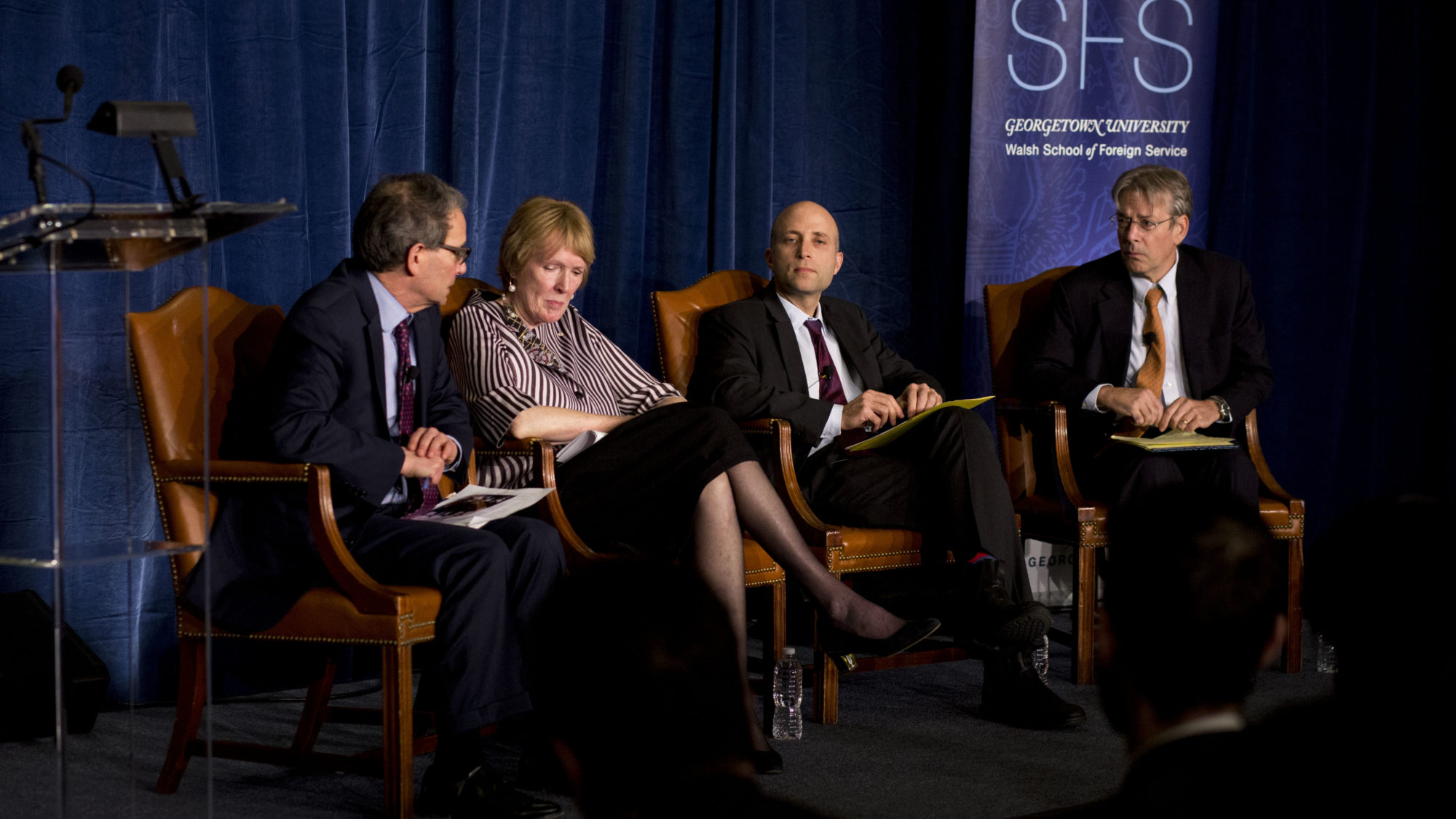To introduce the prominent speakers gathered for the lecture, Robert Lloyd George, great-grandson of UK Prime Minister David Lloyd George (1916-22), spoke briefly about the accomplishments and legacy of his great-grandfather. According to Lloyd George, “liberal sympathy and vision was the keynote of Prime Minister David Lloyd George’s whole career and in many ways it precedes President Wilson’s 14 points and his radical notion of self determination.”
For the keynote address, Margaret MacMillan, author of Paris 1919: Six Months that Changed the World, addressed the Paris Peace Conference and the Treaty of Versailles in the context of the world today. She called it an “extraordinary event,” filled with “tremendous hopes for revenge, justice, recompense, a new world.” MacMillan also disputed a few prominent myths about the conference, including whether the Paris Peace Conference was a failure. “My short answer to that is: what was everyone doing for 20 years? It’s a long time between 1919 and 1939 and many mistakes were made along the way. I would argue that the Paris Peace Conference and the ending of the First World War did not produce the Second World War, but it allowed or promoted the conditions that made a Second World War possible.”
John Ikenberry, Albert G. Milbank Professor of Politics and International Affairs at Princeton University, and Erez Manela, Professor of History at Harvard University, joined MacMillan for a panel discussion following the lecture. Charles Kupchan, Professor of International Affairs and Government at SFS, moderated the discussion. The four theorized about domestic consent in the making of international treaties, the significance of the year 1919, and the nature of bargaining during the Paris Peace Conference.
“In 1815, they didn’t have to worry about public opinion. In Westphalia, they didn’t have to worry about public opinion. Paris was in some ways the first time in history that the main players were democracies and they therefore needed domestic consent,” Kupchan said.
Manela, who specializes in the history of the United States in the world, talked about the differences in U.S. attitudes toward the League of Nations and the United Nations. “In the U.S., this was less about public opinion writ large and more about the political system — in particular, the relationship between the president and the Senate in 1919 and 1945.”
For John Ikenberry, 1919 signifies a macro-historical turning point. He argued that the international system at the time was moving in a direction defined by two master trends: transition from empire to a world of nation states and rising economic and security interdependence.
Following the moderated discussion, the three took questions from the audience. One audience member asked about parallels between the flash-points in the Balkan peninsula in 1914 and the Korean peninsula today. “What lessons would you draw from 1914, rather than 1919, for today?” For MacMillan, the intensity of the conflicts in such small, strategic areas and the extent of the great power involvement gives her cause for concern. Even more, she elaborated, “what concerns me most is the role of accident in history. You could argue that if the Archduke hadn’t taken the wrong turn in Sarajevo on that day in June 1914, we might not have had a World War.”

